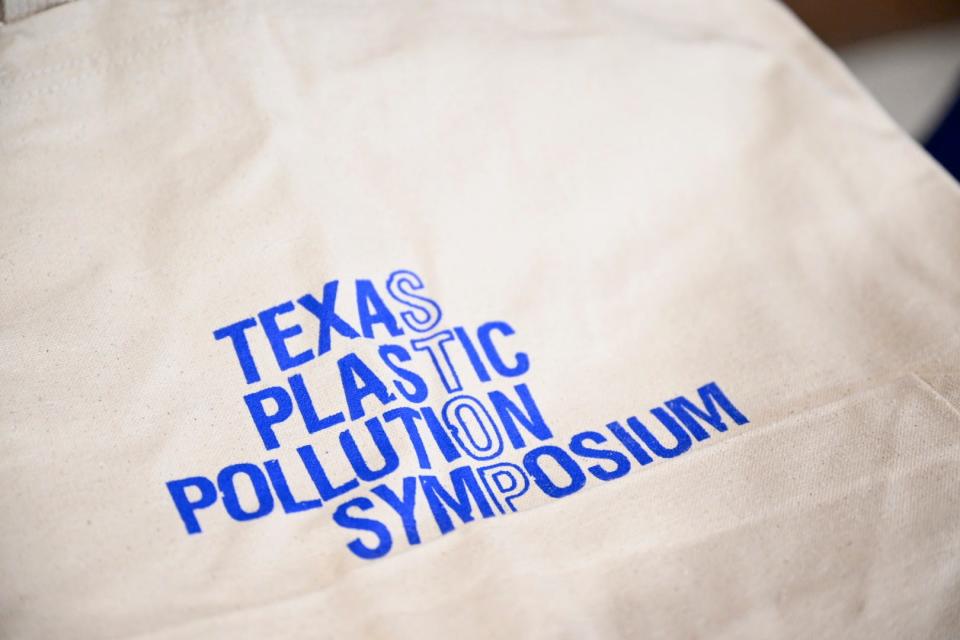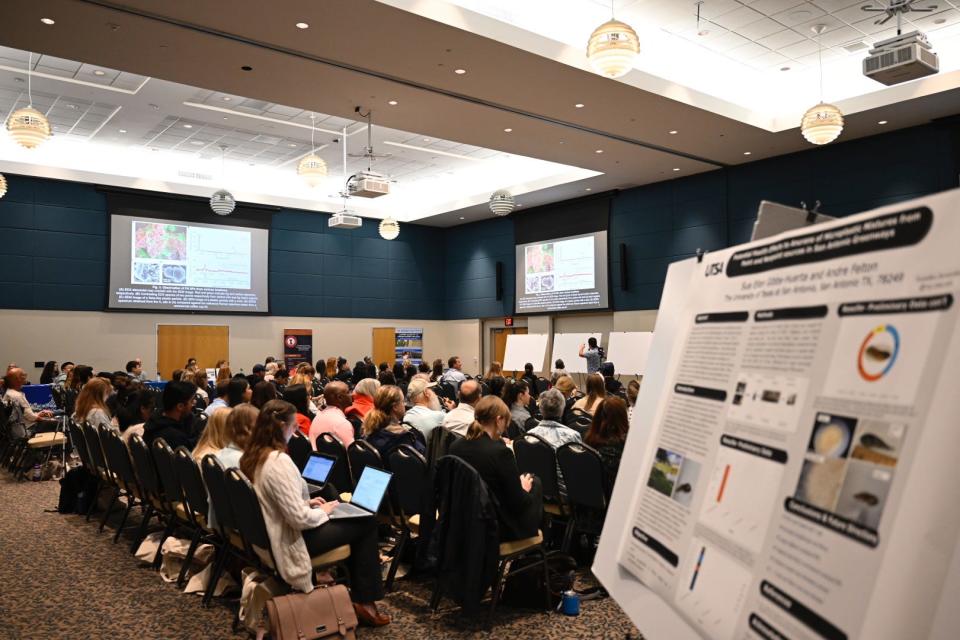Texas researchers gather in Corpus Christi for Texas Plastic Pollution Symposium
As the amount of plastic going into waterways is increasing, researchers and environmental groups are documenting how plastic is impacting wildlife and the environment.
The plastic is everywhere — in the oceans, on the beaches and in the human body.
The Texas Plastic Pollution Symposium held at Texas A&M University-Corpus Christi on Thursday brought together individuals from across the state to discuss plastic pollution.
Aarthi Ananthanarayanam, director of the Ocean Conservancy's Climate and Plastics Initiative, presented the keynote address.
"We spend a lot of time thinking about where plastics end up, but we don't spend as much time thinking about where they come from and why we have so much plastic," Ananthanarayanam said.

Ananthanarayanam said that there is so much plastic today globally because so much oil is being produced.
"Plastics are made from the byproducts of crude oil and gas production," Ananthanarayanam said. "We actually use a staggering amount of oil to make plastic."
Throughout the day, other presenters discussed pollution monitoring projects in Texas, the chemistry of plastic pollution, impacts to fish and wildlife, solutions and education and outreach.
Huy Vu, Environmental Protection Agency Region 6 Trash-Free Waters Coordinator, spoke as well. The Trash-Free Waters program aims to reduce the amount of trash entering U.S. waters by working with partners to target land-based sources of trash pollution.
Aquatic trash can affect water quality, endanger plants and animals and pollute outdoor spaces that communities rely on for tourism and recreation. Plastic waste in particular is especially concerning because it is widespread and tends to persist in the environment for a long time.
Rather than biodegrading, plastic wastes can break down into microplastics which are difficult to clean up. Microplastics can also absorb toxic chemicals and cause harm to organisms that eat them, traveling up the food chain as the organisms are eaten by others. Microplastics have been found in fish and shellfish that people also eat.

Attendees also heard about a project that has roots in the Coastal Bend, Nurdle Patrol.
Nurdle Patrol is a citizen science project run by the Mission-Aransas National Estuarine Research Reserve at the University of Texas Marine Science Institute in Port Aransas.
Nurdles are plastic pellets that serve as raw material for plastic manufacturing. Through the Nurdle Patrol, citizen scientists count how many nurdles they can find on the beach in just 10 minutes.
"We've known for decades there has been a problem with nurdles in the environment," Nurdle Patrol founder Jace Tunnell said.
Wildlife eat nurdles, which soak up harmful chemicals, Tunnell said.
Recently, the effort has expanded to Mexico, working with Universidad Veracruzana.
The program has recorded high amounts of nurdles in Texas, as well as spots in Mexico like Veracruz, but few nurdles in places with fewer plastics manufacturing plants like the western coast of Florida.
About 100 volunteers in Mexico have completed almost 1,000 surveys in the past couple of years.
In total, about 10,000 volunteers worldwide across about 30 countries have participated.
"It's hard to make change if you don't show there's a problem," Tunnell said.
Kirsten Sorensen with Keep Texas Beautiful discussed the Texas Litter Database, a project that collects data from trash cleanups across the state.
As of mid-March, the project had collected 2,725 trash reports documenting the clean-up of 3.6 million pounds of litter.
Of the trash survey respondents classified and catalogued into categories, 62% was plastic.
One of Ananthanarayanam's key takeaways is that the predicted growth in plastic production is still just a projection.
"It's still a story people are telling to justify growth and expansion," Ananthanarayanam said. "And we, as policymakers, as advocates, as consumers, as scientists, have a responsibility to try to change that story."
More information about the research and programs covered during the event can be found online at https://texasplasticpollutionsymposium.com/program-and-events/.
Environmental report on plastics industry highlights emissions from Coastal Bend plants
State grant would support more city air quality planning
City considers water plant expansion and potential groundwater purchase
This article originally appeared on Corpus Christi Caller Times: Plastic pollution symposium covers impacts, responses to pollution

